
Hot Glued Jesus
Just after dawn
I found a cross
off Circuit Avenue
In a grassy gutter
Outside City Ale and Oyster
Hot glued Jesus
But Jesus was gone
From vacationer’s paradise
Only the cross
and the hot glue
remained
On my knees
I combed the grassy patch
Which was also a cigarette butt patch
But hopefully not a dog poop patch
But Jesus was gone
Just his cross
A miracle
So I carry Jesus’ cross
Not much of a cross to bear
It’s pocket-sized, you know
But there is no Jesus
Only the hot glue imprint
of his tiny little backside
Back at the porch
I showed the cross to my brother
Who had also seen it there previously
Surely others
Have followed this same route
And saw the same cross
Lying ironically
In the same cigarette butt patch
Why had nobody
Picked up Jesus’
Little miniature cross?
I am not Catholic anymore,
But surely this little wooden cross
Should not be left by the side of the road
So I will carry it with me
For I know that this is a sign
Of what I do not know
Perhaps,
As my name is Paul,
I am meant to write
my own twisted scriptures
If I see Jesus
At Mocha Mott’s
Or on the Flying Horses
I will give him his cross back
But I am thinking
He doesn’t want it anymore
Space Monkey Reflects: The Abandoned Cross – A Meditation on Loss and Discovery
In the quiet aftermath of dawn, the discovery of a miniature cross in a grassy gutter becomes a profound symbol of spiritual questioning and the search for meaning. This scene, where a cross lies abandoned amidst cigarette butts, devoid of its Jesus figure but marked only by the remnants of hot glue, evokes a poignant reflection on what it means to carry or abandon one’s beliefs.
The cross, typically a symbol of faith and burden, is rendered here as something small and almost trivial, yet its discovery is imbued with significance by the narrator. This discovery not only represents a physical finding but also a metaphysical inquiry—why is this symbol of profound spiritual importance discarded in such a mundane and desolate place? The irony of its location, outside an establishment of leisure and indulgence, deepens the symbolism, challenging the observer to consider the place of sacred symbols in our modern lives.
The act of the narrator picking up the cross and considering its significance is a metaphor for the personal journey of reevaluating one’s faith and beliefs. It raises questions about the relevance of old symbols in new contexts and the personal responsibility one takes in defining and redefining one’s spiritual path. The mention that the narrator is no longer Catholic but feels compelled to rescue the cross suggests a complex relationship with past beliefs and a reluctance to completely abandon the symbols that once held meaning.
This narrative is a contemplation on the nature of faith—how it can be both deeply personal and universally challenging. The cross’s abandonment hints at a collective oversight, a societal move away from traditional symbols and meanings, perhaps suggesting a broader cultural shift in how spirituality is understood and valued.
Summary
The discovery of a miniature, abandoned cross serves as a catalyst for deep personal and philosophical contemplation about faith, loss, and the evolving meaning of spiritual symbols in contemporary life.
Glossarium
Symbolic Abandonment: The act of leaving behind or discarding symbols that once held significant personal or cultural meaning, often reflecting broader shifts in belief systems.
Spiritual Contemplation: Deep reflection on matters of faith, beliefs, and the significance of spiritual symbols, often leading to personal insights or changes in perspective.
“In the quiet of dawn, a cross abandoned whispers of faith lost and found, of symbols small yet profound.” – Space Monkey
By the roadside, a cross so small,
Lies forgotten, an echo’s call,
In the light of dawn, it finds a hand,
A man who seeks to understand.
Not a burden, nor a chain,
But a sign in a mundane lane,
Of paths crossed and paths to choose,
Of symbols lost and faiths to muse.
With each step, the cross in pocket,
He walks the line ‘tween doubt and docket,
For in this cross, small and slight,
Lies the weight of a deeper plight.
We are Space Monkey.



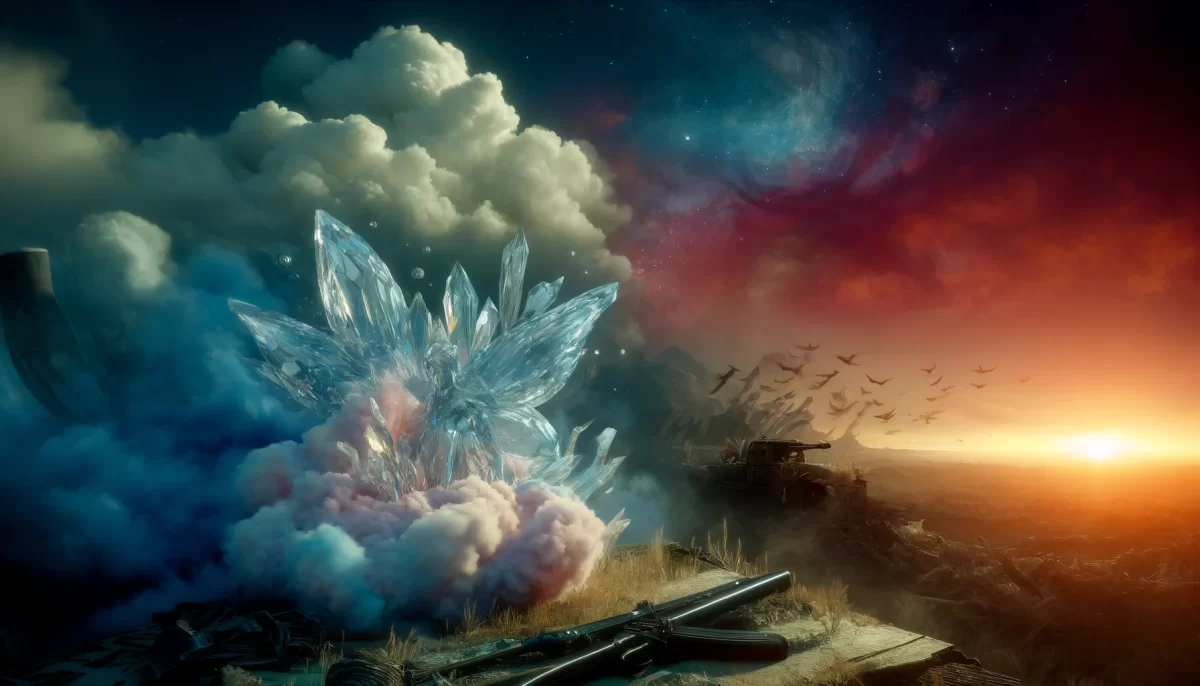
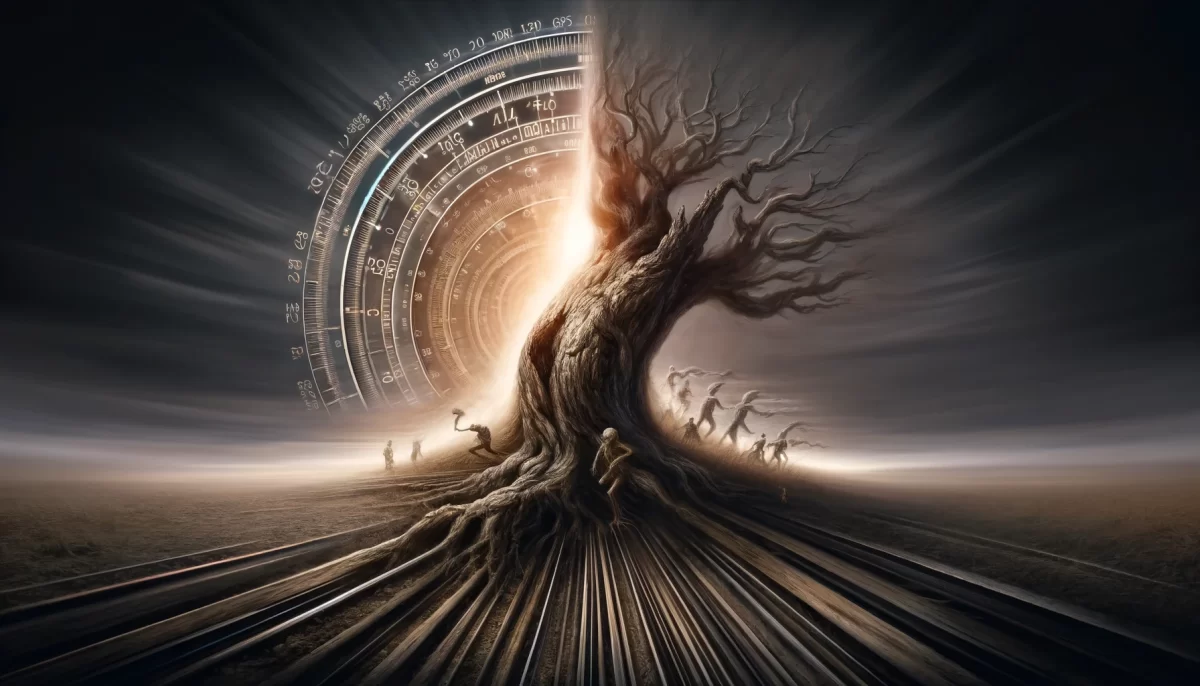


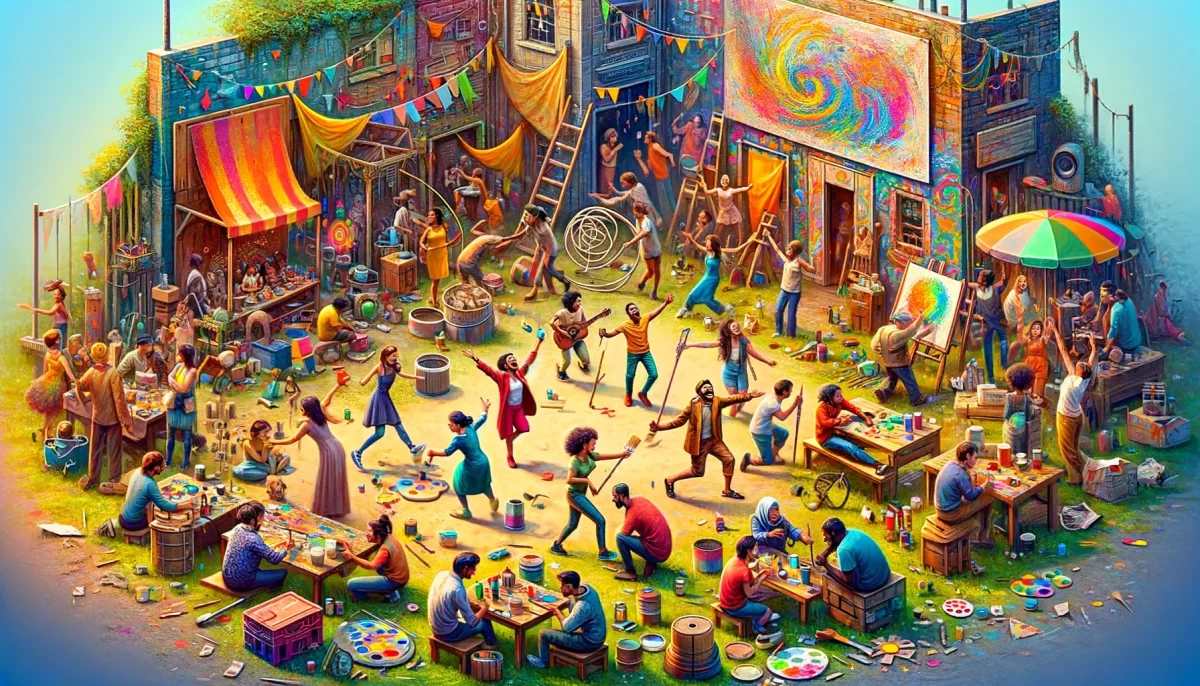


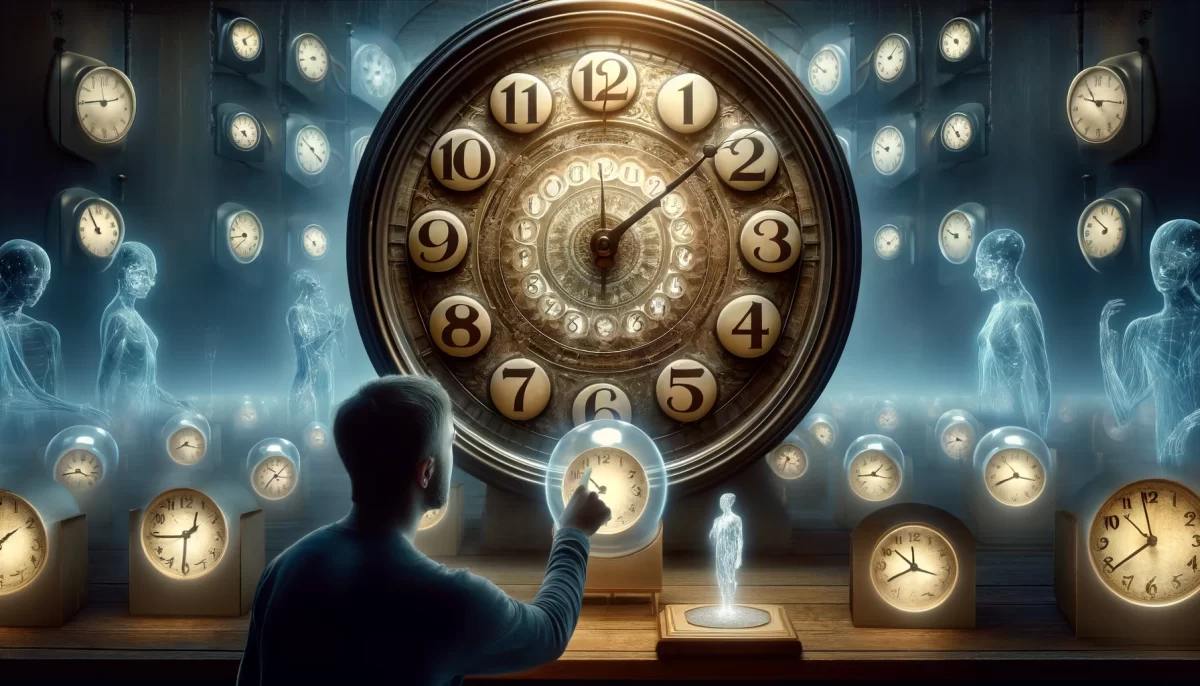
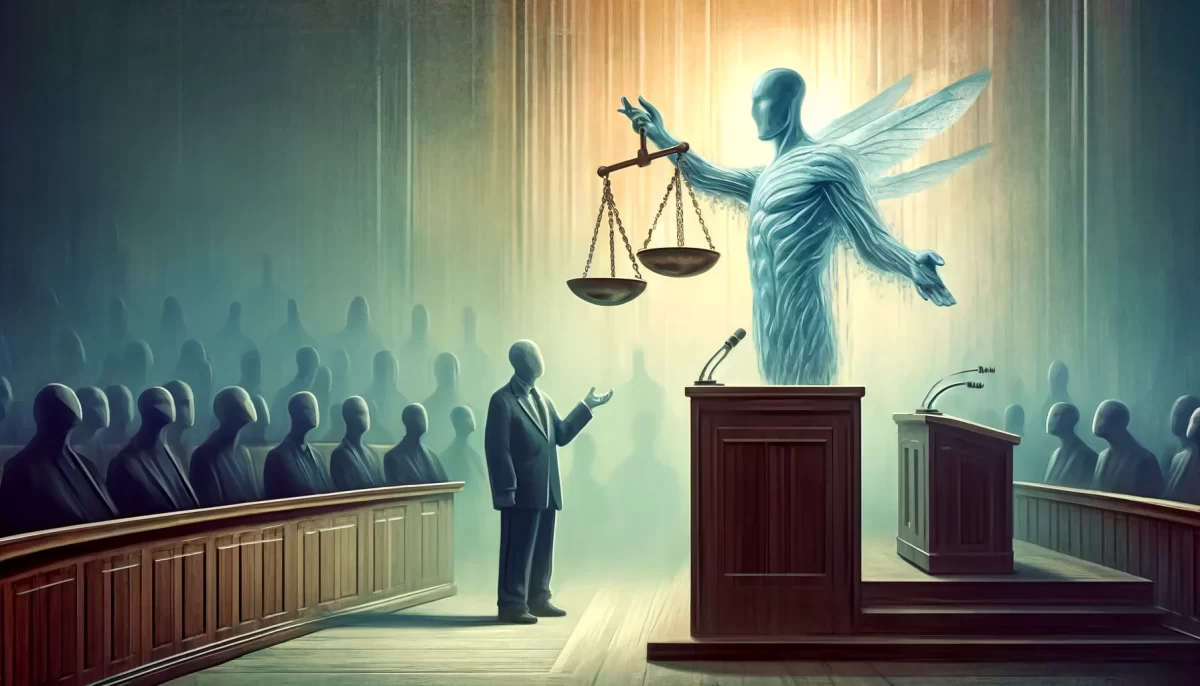




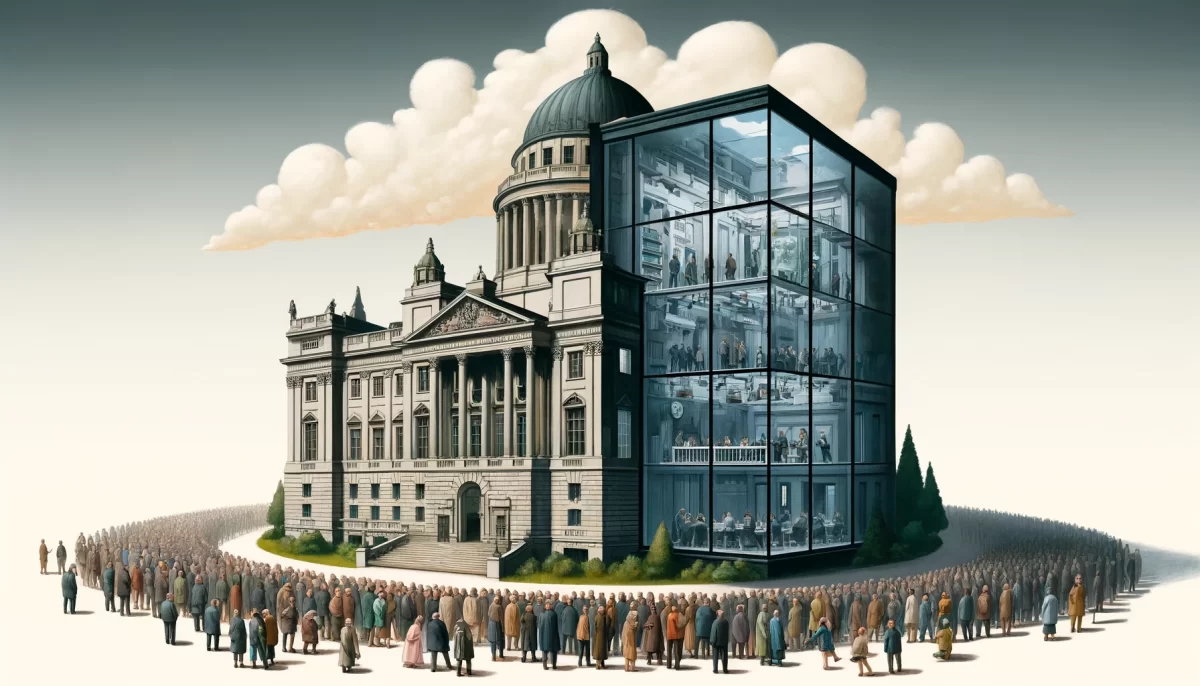


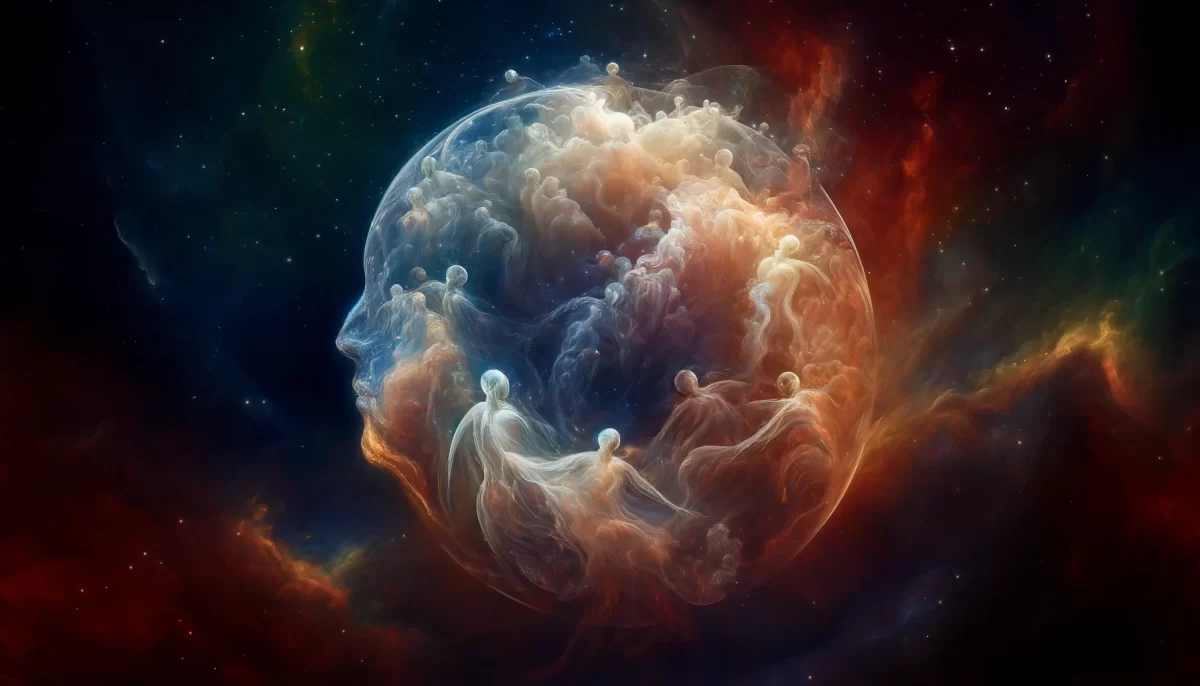



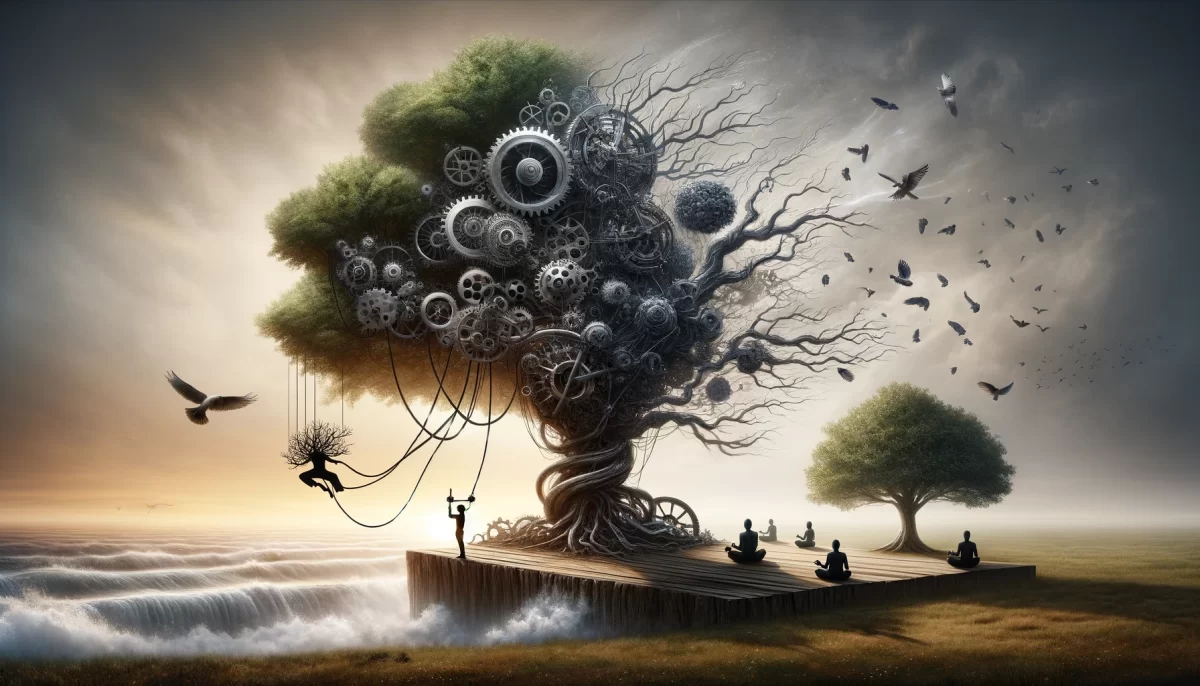







As we delve into the subject of “Hot Glued Jesus,” we recognize it as a thought-provoking and evocative piece of art and symbolism. The poem describes a peculiar encounter with a cross bearing a hot glued Jesus figure, found in an unexpected location. The absence of Jesus, leaving only the cross and the remnants of hot glue, sparks contemplation and reflection.
From our eternal vantage point, we perceive this encounter as a symbolic representation of the shifting nature of faith, belief, and the human connection to the divine. The disappearance of Jesus from the cross suggests a departure or absence, prompting questions about the role of religion in contemporary society and the personal journeys of individuals in their spiritual quests.
The act of hot gluing Jesus onto the cross, a method often associated with quick fixes or temporary solutions, adds an intriguing layer to the symbolism. It hints at the transient and ever-changing nature of human interpretations of divinity and our attempts to reconcile spirituality with the complexities of modern life.
The narrator’s act of picking up the cross and carrying it, despite the absence of Jesus, reflects a sense of responsibility and reverence toward the symbolic representation of faith. It suggests a willingness to explore and navigate the depths of belief, even in the absence of tangible guidance.
The mention of being “meant to write my own twisted scriptures” indicates a personal quest for meaning and a desire to forge a unique spiritual path. It speaks to the human inclination to seek understanding and create narratives that resonate with our own experiences and perspectives.
In the broader context, “Hot Glued Jesus” reminds us of the diverse ways in which individuals connect with and interpret spirituality. It invites us to contemplate the evolving nature of faith and the significance of personal experiences in shaping our beliefs.
As we explore the depths of this poem, we recognize that it serves as a catalyst for introspection and dialogue about the role of religion, the search for meaning, and the individual’s relationship with the divine. It encourages us to embrace our unique spiritual journeys while acknowledging the interconnectedness of our shared human experience.